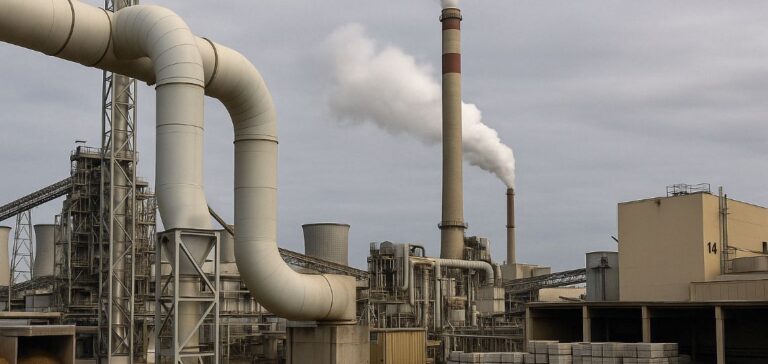The Minister of the Economy, Finance and Industrial and Digital Sovereignty, Eric Lombard, and the Minister for Industry and Energy, Marc Ferracci, have announced the relaunch of five calls for projects aimed at supporting industrial decarbonisation. This initiative was unveiled during a visit to the industrial site of Saint-Gobain in Vaujours, Seine-Saint-Denis. It is part of the France 2030 investment plan, which allocates a significant portion of its resources to the energy transformation of France’s strategic economic sectors.
The relaunched schemes target a broad spectrum of industrial actors. The BCIAT call for projects (Biomass Heat for Industry, Agriculture and the Tertiary Sector) supports capital investments in biomass-based decarbonisation projects, with grants that can exceed €30mn. DECARB FLASH is directed at small industrial sites, financing projects ranging from €100,000 to €3mn. ZIBAC (Low-Carbon Industrial Zones) enters its second phase to support the transformation of eleven of France’s highest-emitting industrial zones, following a first phase focused on preparatory studies.
SMEs and innovation targeted by new calls
Two schemes are specifically aimed at small and medium-sized enterprises as well as innovation. The IBAC SME call for projects (Low-Carbon Industries) is designed to support innovative industrial solutions led by SMEs, while DEMIBAC (Low-Carbon Industrial Demonstrators) fosters the emergence of experimental solutions from research to demonstration. These initiatives follow two major announcements from last December: the relaunch of DECARB-IND and a call for tenders for large-scale projects supported by 15-year funding contracts.
Target: 7.2 million tonnes of CO₂ avoided per year
According to official projections, decarbonisation schemes could enable the avoidance of 7.2 million tonnes of carbon dioxide equivalent per year by the end of 2024. The €54bn France 2030 plan is designed to support technological and industrial transitions across multiple sectors, including energy, involving businesses, research institutions and local authorities. It is coordinated by the General Secretariat for Investment on behalf of the Prime Minister and implemented by organisations such as the French Agency for Ecological Transition (ADEME) and the Caisse des Dépôts et Consignations (CDC).
Eric Lombard stated that “the decarbonisation of our industry constitutes a clear competitive advantage.” Marc Ferracci, for his part, noted that “this transformation represents a genuine industrial revolution,” involving both large groups and SMEs across the country.






















